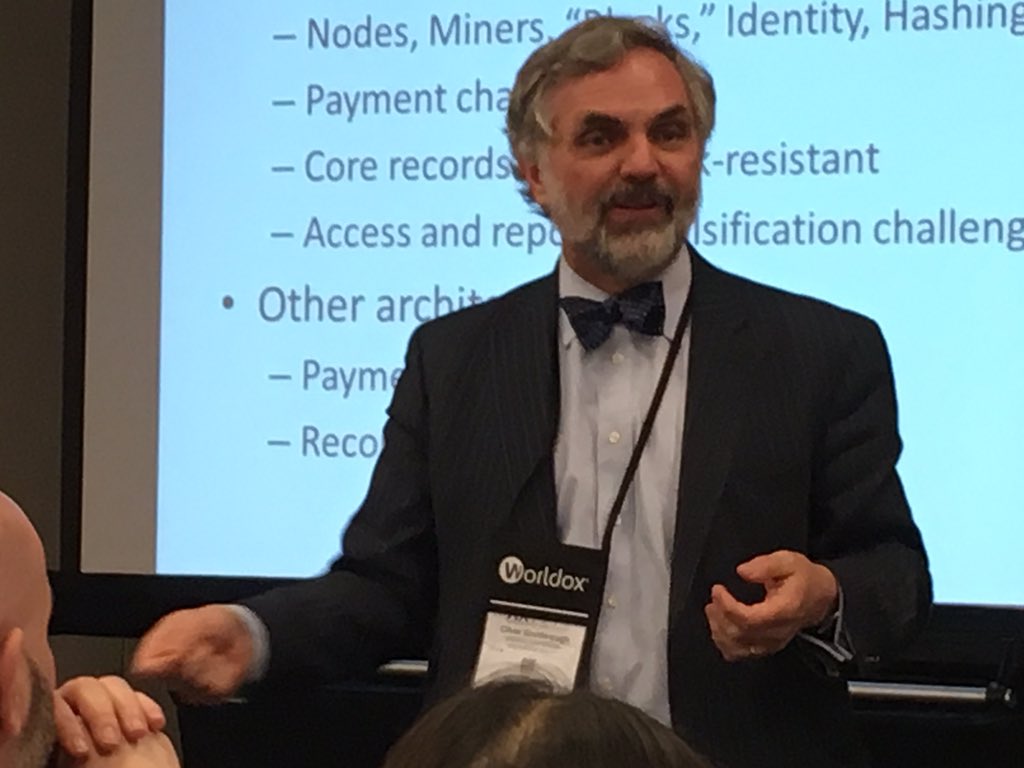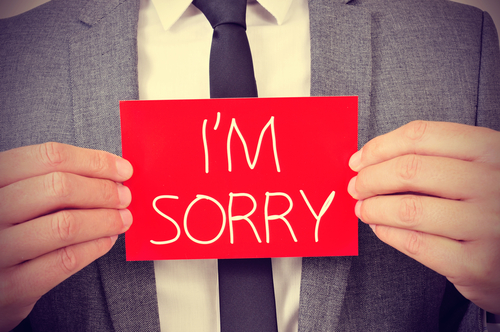Blockchain technology can provide lawyers with an authentic, secure ledger

Oliver Goodenough. Photo by Stephen Rynkiewicz.
A crash course in blockchain at ABA Techshow started Friday with Oliver Goodenough instructing participants to repeat after him its more useful generic description, "distributed ledger technology."
Lawyers may have little need for Bitcoin, the technology’s breakout application in digital currency, the Vermont Law School professor said. But lawyers use ledgers—in areas as diverse as property records, UCC filings, court records, fund transfers, chains of custody, contracts and legal opinions.
Goodenough, director of the Center for Legal Innovation at Vermont Law, said blockchain gives them a robust and accessible way to record and authenticate legal matters. “If you can get active in it, there are opportunities for clients,” he said. Yet a show of hands in Friiday’s session found only three or four early adopters.
Blockchain is an electronic record shared in blocks and chained together. “We are not keeping a whole record, but a cryptographic shorthand,” he said, a secure summary that’s “really, really hard to hack.”
Delaware is considering applying blockchain to corporate filings. Goodenough helped draft Vermont’s 2016 law that gives blockchain a notarial legal status: Blockchain-verified records are recognized as authentic, if not valid.
“I can still notarize lies,” he warned.
Participants in the blockchain still need to police the system, and Goodenough said a dispute resolution system for blockchain has yet to emerge. When fraud is discovered, as in the 2016 hack of the Etherium contract platform, participants reset the record at a point before the hack started.
“Basically they organized a posse that got together and changed it,” Goodenough says. As more transactions adopt blockchain records, “is vigilante justice adequate?”
See also:
ABA Journal: Bitcoin’s blockchain technology being used in business, finance and contracts
Follow along with our full coverage of the 2017 ABA Techshow



